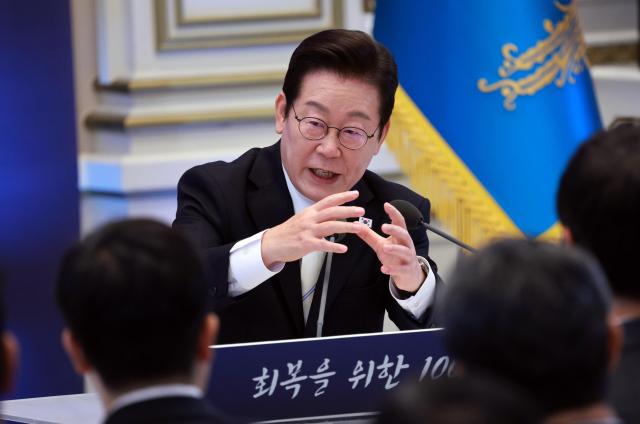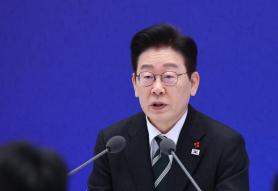
"Education policy is not about changing the admissions system," Lee said when asked about competition in schools. He pointed to excessive competition as the root problem and argued that AI can create more opportunities and drive growth.
"The real issue is how to create more opportunities, how to achieve more growth, and how to distribute those opportunities more fairly. We should implement AI-related education across the board. Let's build our people's ability to adapt to and use AI," he said. "Let's start it seriously from the lower grades, just like learning addition and subtraction, because AI will become part of daily life."
Lee's emphasis on AI echoes one of his central campaign pledges: accelerating South Korea's AI capabilities as a driver of growth and productivity. During the June 4 snap election, he vowed that the country would become a "top-three AI powerhouse" by expanding research, industrial applications, and public-sector use of the technology. His administration has presented AI as a tool to modernize traditional industries, address education inequality, and secure South Korea's place in the global economy.
On the economy, Lee underscored the same promise in concrete terms. "The South Korean economy will be massively reorganized around high-tech industries, including AI. Traditional manufacturing will be converted to AI, energy will shift to renewables, and we will build up cultural industries in a major way," he said, adding that providing such direction is enough to keep the country from faltering.
The president also turned to the fallout from a U.S. immigration raid at Hyundai Motor Group and LG Energy Solution's battery plant construction site in Georgia, where more than 300 South Koreans were detained.
In what U.S. officials described as the largest single-site immigration enforcement action ever conducted, federal agents arrested about 475 people at the Hyundai-LG Energy Solution plant, most of them South Korean nationals. Investigators said many workers had entered the U.S. on short-term visas or through the visa waiver program, which does not allow employment. Construction at the $4 billion facility has been suspended, fueling diplomatic tensions and raising doubts among South Korean investors about the risks of expanding in the U.S.
"As of today, our latest information is that at 3 p.m., they will leave the detention facility, with the flight scheduled to take off at about 1 a.m. tomorrow and arrive in Seoul tomorrow afternoon," Lee said. "There are 316 South Koreans, 306 men and 10 women, along with 14 foreigners, moving by the chartered flight. One of the detainees chose to remain in the U.S. because of a family situation."
Lee added that Seoul had objected to U.S. authorities' initial plan to transport the workers in handcuffs and pressed for their release without restraints. "Frankly, it is embarrassing," he said. "Companies must be wondering whether investing directly in the U.S. is worth it. If this situation continues, it will inevitably affect future investment decisions."
On security and inter-Korean relations, Lee emphasized the need to reduce tensions despite North Korea's cool stance. "From North Korea's perspective, it would be foolish to expect them to suddenly change their stance just because our government stopped loudspeaker broadcasts and took a few conciliatory steps," he said. "But for us, easing military tensions along the border is in our interest. It is not for them, but for us."
Rejecting ideological labels, Lee described his approach as pragmatic. "It is not because Lee Jae Myung is pro-North Korea. It is because this is about South Korea," he said. "North Korea's nuclear and missile issues are directly tied to the U.S. The armistice was signed by the U.S., not us. So, of course, U.S.-North Korea relations are critical. But when that relationship improves, it also helps inter-Korean relations."
Lee added that he would continue to act as a go-between for Washington and Pyongyang. "Right now, the person who can have the strongest influence is President Donald Trump," he said. "If he plays the role of peacemaker, I will do my best as the pacemaker."
The press conference followed Lee's intense diplomatic schedule, which included summits with the G7, Japan, and the United States. He is set to attend the U.N. General Assembly and APEC later this year.
Reflecting on his first months in office, Lee said, "The past 100 days were about recovery and normalization. From today until the last day of my term, I will dedicate myself to building a country where the people are the true owners, and where South Korea can grow and leap forward."
Copyright ⓒ Aju Press All rights reserved.




